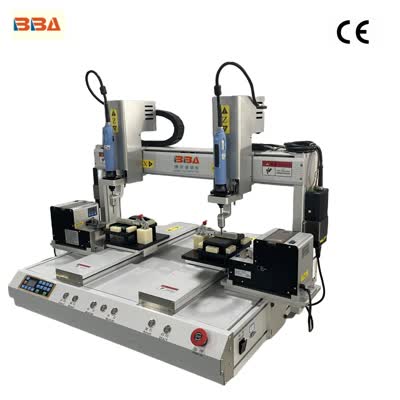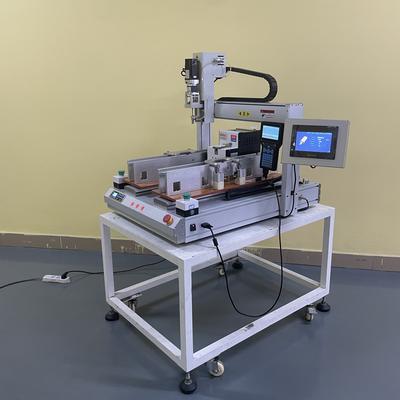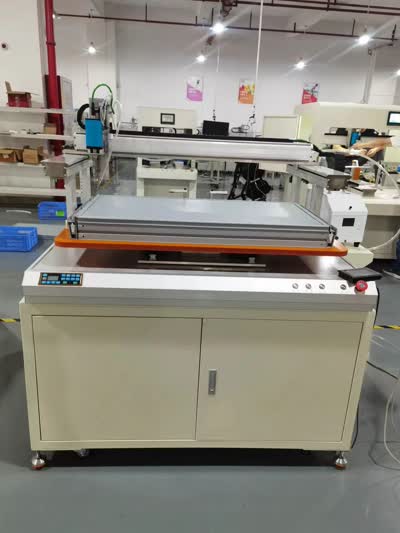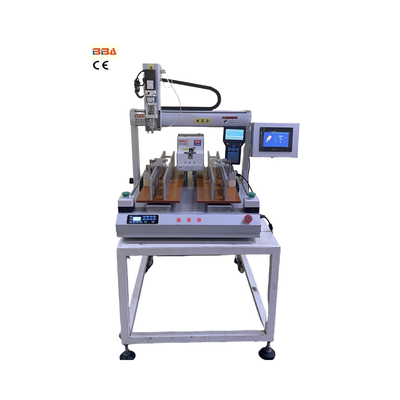Servo Screw Machine Torque Control | Precision Fastening Systems

| Product Name | Applicable industries |
| Automatic Screw Feeder | Home Appliance Production |
Understanding the Torque Control in Servo Screw Machines
In the realm of industrial automation, precision and reliability are paramount. For assembly processes involving fastening, servo screw machines have become the cornerstone of efficiency and quality. At the heart of these sophisticated systems lies a critical function: torque control. This technology is what enables the consistent, accurate, and reliable tightening of screws and bolts, ensuring every product meets stringent specifications.
The Fundamental Role of Torque Control
Torque, in simple terms, is a measure of rotational force. In screw driving applications, applying the correct torque is essential. Under-torque can result in loose connections, leading to product failure, vibration, and potential safety hazards. Over-torque can cause damage to the screw, the thread, or the component itself, resulting in stripped threads, broken fasteners, and compromised structural integrity.
Servo screw machines equipped with advanced torque control transcend the limitations of traditional pneumatic or DC tooling. They provide a closed-loop system that continuously monitors and adjusts the output torque in real-time throughout the fastening cycle. This digital precision ensures that the exact predetermined torque value is achieved consistently for every single operation, cycle after cycle.
How Precision Torque Control is Achieved
The process begins with the operator or system integrator setting a target torque value and often a window of acceptance within the machine's controller. As the servo motor rotates the screwdriver bit, a built-in torque sensor or an algorithm that calculates torque based on motor current feedback constantly measures the resistance encountered.
This real-time data is fed back to the servo drive and controller. The controller compares the measured torque against the target value. Using this feedback, the system makes instantaneous adjustments to the motor's power output. When the sensor detects that the preset torque value has been reached, the controller immediately signals the servo motor to stop, completing the fastening process with exceptional accuracy.
Key Benefits for Modern Manufacturing
The implementation of precise torque control offers a multitude of advantages that directly impact production quality and operational costs.
- Uncompromising Quality Assurance: Eliminates fastening defects by guaranteeing every joint is tightened to its exact specification, drastically reducing the probability of product failures and recalls.
- Enhanced Process Monitoring and Traceability: Modern systems record torque data for every fastening operation. This creates a complete digital traceability record, essential for quality audits, process validation, and troubleshooting.
- Reduced Scrap and Rework: By preventing damage from over-torquing and failures from under-torquing, manufacturers see a significant reduction in wasted materials and the labor costs associated with repair.
- Increased Productivity: The high speed and repeatability of servo systems, combined with right-first-time accuracy, maximize throughput and overall equipment effectiveness (OEE).
- Flexibility for Complex Applications: Sophisticated controllers can execute complex routines, such as multi-stage torqueing (e.g., a snugging stage followed by a final torque stage) or angle monitoring, which is crucial for certain tension-critical applications.
Beyond Basic Fastening: Advanced Strategies
Leading-edge servo screwdriving systems leverage torque control for more than just a simple shut-off signal. They enable sophisticated strategies like:
- Window Control: Defining upper and lower tolerance limits for torque and angle to detect cross-threading, missing components, or defective screws.
- Yield Control: Monitoring the rate of change of torque to identify the yield point of a fastener, ensuring optimal clamping force without exceeding the fastener's elastic limit.
In conclusion, torque control is not merely a feature of servo screw machines; it is their defining capability. It transforms a basic mechanical action into a data-rich, precise, and reliable process. For any manufacturer aiming to achieve zero-defect assembly, improve traceability, and optimize their production line, investing in servo screwdriving technology with advanced torque control is a decisive step toward industrial excellence.


